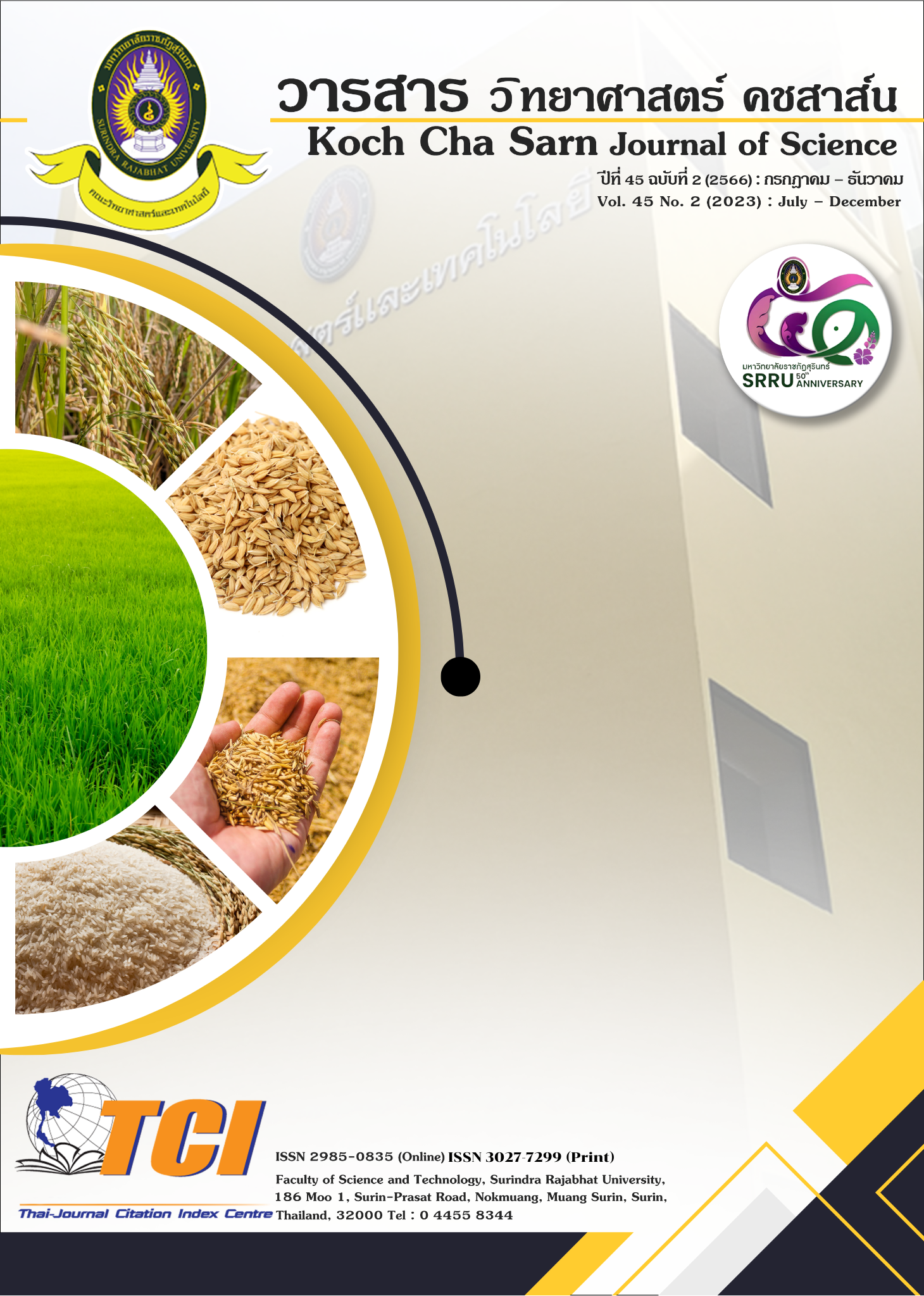Larvicidal activity of Apium graveolens Linn leaf crude extracts against Aedes aegypti mosquito
Keywords:
Larvicidal activit, Apium graveolens Linn leaf crude extracts, Aedes aegyptiAbstract
This study was to test Larvicidal activity against Aedes aegypti mosquito under laboratory conditions. There will be a total of 17 jars for testing, comprising 1 jar of negative control (water), 1 jar of positive control (20 mg of Abate) and 15 jars for experiments. Concentrations from Apium graveolens Linn leaf crude extract were determined at concentrations of 2.5, 5, 10, 20 and 40 % w/v, respectively. Each jar was filled with 30 Aedes aegypti larvae at 3rd stage to determine the mortality rate at 24 and 48 hours. It was found that,
- At a concentration of 2.5 % w/v, mosquito larvae had a 24-hour mortality rate of 30.00±3.33.
- At a concentration of 5 % w/v, mosquito larvae had a 24-hour mortality rate of 63.33±5.77.
- At a concentration of 10 % w/v, mosquito larvae had a 24-hour mortality rate of 85.56±5.09.
- At a concentration of 20 % w/v, mosquito larvae had a 24-hour mortality rate of 94.44±1.92.
- At a concentration of 40 % w/v, mosquito larvae had a 24-hour mortality rate of 100.00±0.00.
- Positive control group: The mortality rate within 24 hours of mosquito larvae was 100.00±0.00.
- Negative control group: The mortality rate within 24 hours of mosquito larvae was 0.00±0.00.
Apium graveolens Linn extract can be an alternative for those who want herbs to get rid of mosquito larvae and can be further commercialized to add value to natural products and promote Thai wisdom.
Downloads
References
Department of disease control. The Department of Medical Sciences revealed the results of the inspection of sand products to eliminate larvae found to be of standard quality [internet]. 2019 [cited 2020 Jun 10]. Available from: https://www3.dmsc.moph.go.th/post-view/216
Ya-ooup K, Kulhong B, Soonchan P. Efficacy of fishes for control Aedes aegypti larvae. Journal of the Office of DPC 7 Khon Kaen. 2015;22(1):49-55.
National Institute of Health. Biological control of mosquitoes plant extract and materials that are easy to find in the household [internet]. 2018 [cited 2020 Jun 10]. Available from: http://nih.dmsc.moph.go.th/login/showimgdetil.php?id=842
Pimsuka1 S, Rakchanat K, Kumhomkul T. Effectiveness of 7 Thai Herbs in the Control of Aedes aegypti Larva. Journal of Allied Health Sciences Suan Sunandha Rajabhat University. 2018;3(1):53-61.
Pennapa Chamavit, Chamnarn Apiwathnasorn, Narumon Kamalamisra, Yuwadee Tongtokit, Khwanchanok Choochit, Pornpan Narupai, Sawitree Butree. Larvicidal activity of Thai medicinal plants against Stegomyia aegypti and Culex quinquefasciatus larvae. [internet]. 2020 [cited 2023 Sep 10]. Available from: https://kukr.lib.ku.ac.th/kukr_es/BKN/search_detail/dowload_digital_file/9620/99743






